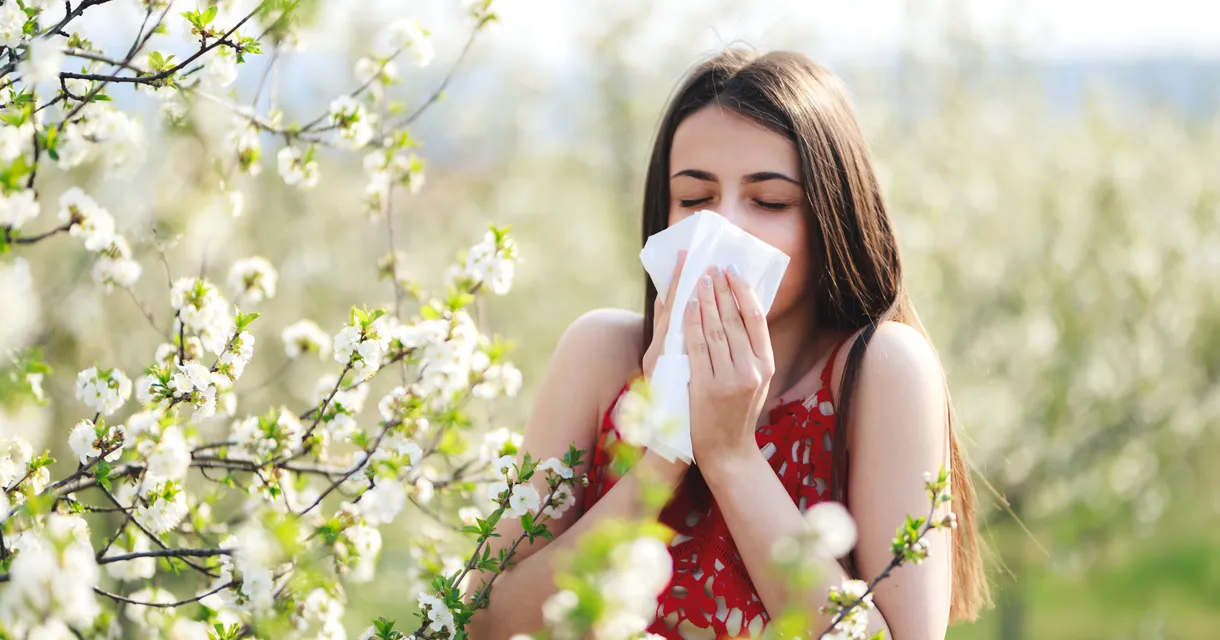Hayfever can occur at any time of the year, but it is most prevalent during the warmer seasons. It's important to understand this common allergy type and how to deal with it as quickly as possible.
Weldricks have put together a simple guide to what hayfever is, its common symptoms and how you can treat it with hayfever tablets. You can also check out our guide to nasal sprays for allergies and hayfever for more information.
What is hayfever?
Hayfever is the common name for allergic rhinitis. Hayfever is caused by a typically harmless substance in your environment triggering your immune system to attack it. Environmental triggers vary, but can commonly include grass, trees, dust mites, weed pollens, and outdoor moulds.
Generally, people with hayfever suffer from an allergic reaction to pollen when it comes into contact with their mouth, nose, eyes, and/or throats. Pollen is a fine powder that can be found in and released by plants that is easily spread, particularly during spring, summer and autumn. Hayfever is usually worse during these times of the year due to the warm, humid, and windy weather and this is when pollen counts are at their highest.
Symptoms of Hayfever
Immediate signs and symptoms of hayfever can include the following:
- Itchy nose
- Runny nose
- Sneezing
- Itchy and watery eyes
- Itchy throat
In severe cases, it can make the individual feel tired and unwell. It may even cause sleep deprivation and loss of concentration.
Treating hayfever yourself
A cure for hayfever is not available currently, however, you can take steps to ease your symptoms when the pollen count is high, including:
- Trap pollen by putting Vaseline around your nostrils
- Wear glasses/sunglasses to minimise pollen getting into your eyes
- Stay indoors whenever possible
- Keep windows and doors shut as much as possible
- Vacuum and clean on a regular basis
- Wash bed sheets and pillowcases on a weekly basis
- Avoid activities that may cause exposure to pollen, such as sports or cutting the grass in your garden.
- Use a damp cloth to dust around your home
- Stay at home if you do not feel well enough and minimise contact with other people
Of course, there are also more effective ways to manage hayfever symptoms such as both non-prescription and prescription products. Always be sure to ask your GP or pharmacist for advice on the best option for you. For example, there are antihistamine tablets, nasal sprays and eye drops that can all help to reduce hayfever symptoms.
Antihistamine hayfever tablets
Allevia and Treathay are two popular brands that offer antihistamine tablets. These tablets contain fexofenadine hydrochloride, which is a non-drowsy antihistamine and helps to relieve common hayfever symptoms such as sneezing, itching, runny or blocked noses, and red and watery eyes.
What is fexofenadine hydrochloride used for?
Fexofenadine is an antihistamine medicine that helps with the symptoms of allergies. It can relieve the symptoms of allergic reactions such as itching, swelling and rashes. Fexofenadine aims to block histamines, which prevents any allergic symptoms from developing.
Allevia & Treathay hayfever tablets
Hayfever symptoms shouldn't impede your day-to-day activities. Both Allevia and Treathay tablets help reduce the main seven hayfever symptoms within one hour.
Allevia and Treathay are prescription-strength remedies that have more recently been made available at pharmacies, providing immediate and up to 24 hours of relief from uncomfortable hayfever symptoms. Allevia tablets are also free from lactose and gluten and are suitable for adults and children aged 12 years and over.
Shop Allevia and Treathay with Weldricks Pharmacy
Weldricks Pharmacy stocks a wide range of allergy and hayfever medication, whether you are looking for Allevia or Treathay tablets or another type of remedy such as eye drops or nasal sprays. You can browse and order via our website or visit your local pharmacy branch to purchase hayfever products.
